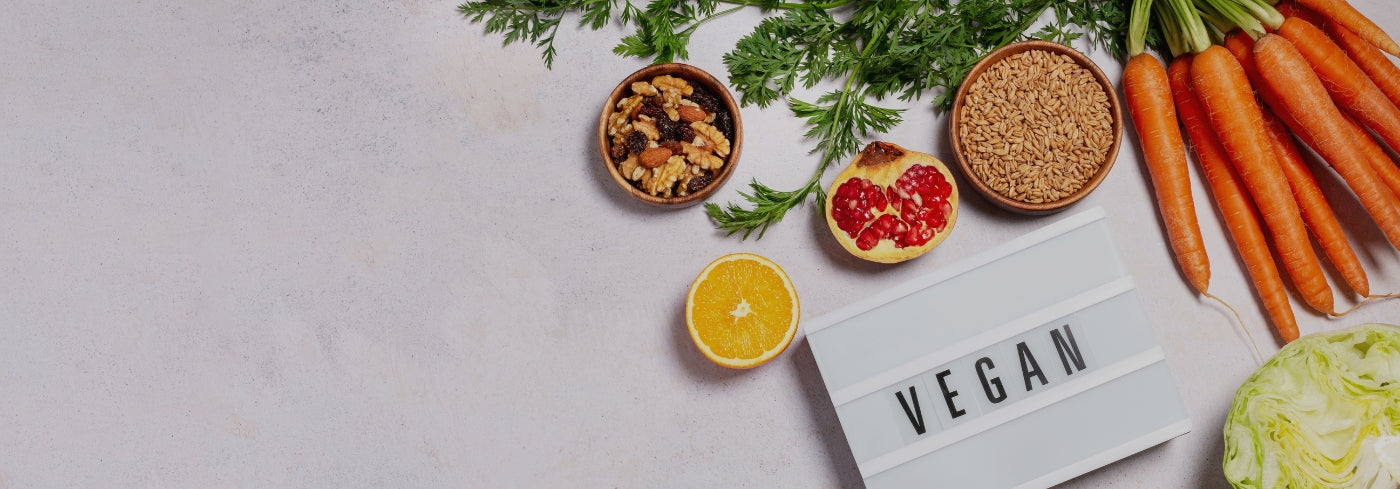Veganistisch opvoeden is de laatste jaren steeds populairder geworden. Steeds meer ouders kiezen ervoor om hun kinderen een volledig plantaardig dieet te laten volgen, vaak vanuit ethische, gezondheids- of milieubewuste overwegingen. Maar is een veganistisch dieet geschikt voor een groeiend kind?
En wat zijn de voordelen en risico’s?
Voordelen van een veganistisch dieet
Een veganistisch dieet biedt een aantal voordelen, mits het goed is samengesteld. Het is vaak rijk aan groenten, fruit, volle granen, peulvruchten, noten en zaden – voedingsmiddelen die boordevol vezels, vitamines, en mineralen zitten. Onderzoek toont aan dat een plantaardig dieet kan helpen bij het verlagen van het risico op obesitas, diabetes type 2 en bepaalde chronische ziekten.
Daarnaast leren kinderen die veganistisch worden opgevoed vaak bewuster om te gaan met voeding en de impact daarvan op het milieu en dierenwelzijn. Het kan hen helpen om al op jonge leeftijd gezonde eetgewoonten te ontwikkelen en een positieve relatie met voedsel op te bouwen.
De gevaren van een veganistisch dieet bij kinderen
Hoewel een goed gepland veganistisch dieet gezond kan zijn, zijn er ook risico’s. Kinderen hebben specifieke voedingsbehoeften omdat ze in een cruciale fase van groei en ontwikkeling zitten. Een tekort aan vitamine B12 of ijzer kan bijvoorbeeld leiden tot bloedarmoede, wat vermoeidheid, zwakte en leerproblemen veroorzaakt. Een tekort aan calcium en vitamine D kan resulteren in zwakke botten en een groter risico op breuken.
Omega-3 vetzuren zijn essentieel voor de hersenontwikkeling en het gezichtsvermogen. Bij een tekort kunnen cognitieve functies en de fijne motoriek achterblijven. Zink en jodium zijn onmisbaar voor een gezonde groei en stofwisseling; een tekort kan leiden tot groeivertraging en een verminderde weerstand.
Het is daarom absoluut niet aan te raden om je kind volledig veganistisch te laten eten als je als ouder geen verregaande kennis hebt van voeding en voedingsstoffen, en de tijd en middelen hebt om dagelijks een goed gepland, uitgebalanceerd dieet te creëren waarbij je kind niks tekortkomt.
Voedingsstoffen om extra op te letten:
De volgende voedingsstoffen zijn vaak een aandachtspunt bij een veganistisch dieet:
- Vitamine B12: Deze vitamine komt van nature alleen voor in dierlijke producten. Een tekort kan leiden tot bloedarmoede en neurologische problemen.
- Ijzer: Plantaardig ijzer (non-heemijzer) wordt minder goed opgenomen dan ijzer uit dierlijke producten. Ijzertekort kan leiden tot vermoeidheid en een verminderde concentratie.
- Calcium en vitamine D: Beide zijn cruciaal voor de ontwikkeling van sterke botten en tanden. Bij een tekort kunnen botten brozer worden.
- Omega-3 vetzuren: Deze zijn belangrijk voor de hersenontwikkeling en het gezichtsvermogen. Plantaardige bronnen zoals lijnzaad en walnoten bevatten ALA, maar dit moet door het lichaam worden omgezet naar de actieve vormen DHA en EPA, wat minder efficiënt gebeurt.
- Eiwitten: Hoewel plantaardige bronnen zoals peulvruchten en tofu rijk aan eiwitten zijn, moeten ze goed worden gecombineerd om alle essentiële aminozuren binnen te krijgen.
- Zink en jodium: Deze mineralen zijn belangrijk voor de groei en stofwisseling. Een tekort kan leiden tot groeivertraging en schildklierproblemen.
Supplementen en tips voor een uitgebalanceerd dieet
Om tekorten te voorkomen, is het belangrijk om een veganistisch dieet goed te plannen en eventueel aan te vullen met supplementen. Aanbevolen supplementen voor veganistische kinderen zijn:
- Vitamine B12-supplementen: Absoluut essentieel voor veganisten van alle leeftijden.
- Vitamine D: Vooral in landen met weinig zonlicht, zoals Nederland, wordt suppletie aanbevolen.
- Omega-3 (DHA en EPA): Kies voor een supplement op basis van algenolie.
- Multivitamine: Speciaal samengesteld voor kinderen, om te helpen bij het aanvullen van eventuele tekorten.
- Calcium: Als er onvoldoende calciumrijke voedingsmiddelen in het dieet zitten, kan een supplement nuttig zijn.
Naast supplementen is het belangrijk om maaltijden zo gevarieerd mogelijk te maken en voedingsmiddelen te kiezen die verrijkt zijn met belangrijke vitamines en mineralen, zoals plantaardige melk met calcium en vitamine D.
Wel of niet doen?
Een veganistisch dieet kan gezond zijn voor kinderen, maar vereist zorgvuldige planning en kennis. Tekorten aan essentiële voedingsstoffen kunnen ernstige gevolgen hebben voor de groei en ontwikkeling, maar met de juiste voedingsmiddelen en supplementen is het mogelijk om een evenwichtig en voedzaam dieet samen te stellen. Raadpleeg altijd een diëtist of voedingsdeskundige om ervoor te zorgen dat je kind alle voedingsstoffen binnenkrijgt die het nodig heeft om gezond te groeien. Met de juiste aanpak kan veganistisch opvoeden niet alleen veilig zijn, maar ook een gezonde en bewuste levensstijl bevorderen.








